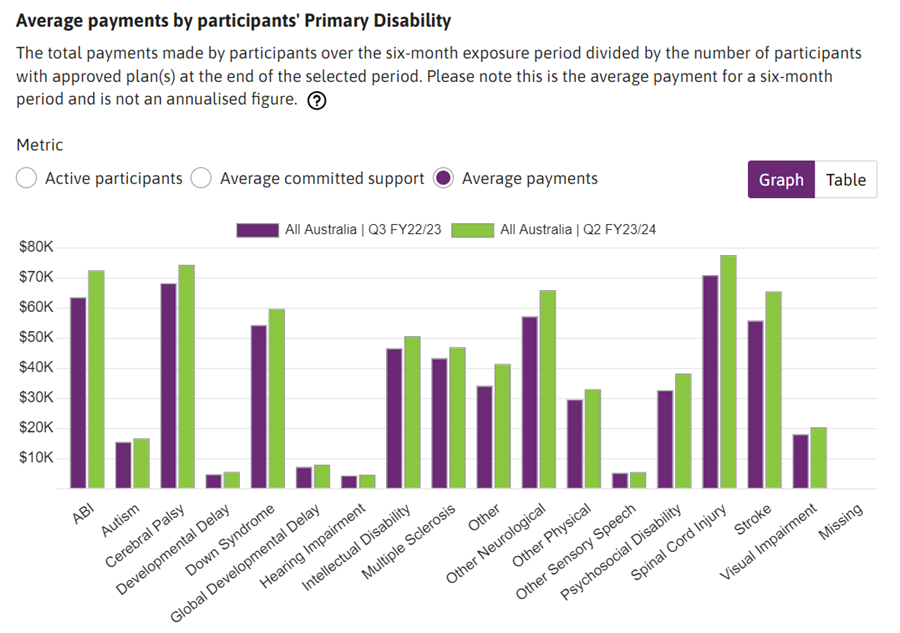Support across the board for the NDIS but growing costs remain a risk

by Nic Stuart | Mar 15, 2024 | The Big Story, Wire
Two crucial pieces of information dropped this week. Taken together, they explain both Bill Shorten’s political problem and a central issue for the NDIS itself.
In yesterday’s Financial Review, Tom Burton exclusively revealed the findings of a detailed Redbridge survey into the way the public feels about the NDIS.
The opinion pollster found that while people believe the scheme is a fundamental government service like Medicare, they are equally concerned about fraud and waste. They also want to ensure ‘sustainability’, ant it’s this final finding that’s the issue.
Now while Redbridge is one of Australia’s newer polling companies, this doesn’t mean it’s not experienced. Director Tony Barry has worked with Malcolm Turnbull and directed Liberal campaigns, while pollsters Kos Samaras and Simon Welsh were with Labor. Put them together and they know how to discover what makes the country tick.
That’s why these findings about the NDIS are so important – they’re accurate and reliable.
The research was commissioned by the NDIS early last year and it found “a remarkable degree of emotional engagement”. In its report Redbridge said “we were consistently struck by the universality and degree of empathy and compassion . . . regardless of political orientation”.
So that’s the good news. Unfortunately the second drop, yesterdays release of the latest quarter’s NDIS data doesn’t make such easy reading. This provides the key information about the scheme’s cost and who’s using it, and the trend-lines haven’t changed.
The number of participants has risen over the past year from 592,059 to 646,449, or six percent across the country. The number of providers has also risen by just under six percent during the same period, with the average number of individual participants each provider caters for remaining (around) three. Other details reveal where the growth surges are concentrated: developmental delay, autism, and psycho-social disability.
This poses a huge risk for the scheme.
While there’s still strong community support for the NDIS, even today it costs about the same amount as the Army, Navy, and Airforce combined (although less than defence as a whole). Burton points out actuarial projections show it’s in danger of blowing out to cost more than $125 billion a year by 2034 (it is $40 billion today). This is Shorten’s nightmare.
The polling also revealed the scheme’s critical vulnerability. As the cost grows, so will resentment from those who are not benefiting. If people think it’s being ‘rorted’ they will quickly turn against it. Maintaining popular support for the NDIS will continue to play a critical role in the scheme’s future

